
Did you know that not all Manuka honey brands are authentic? It’s true! Many people are unknowingly purchasing fake Manuka honey, thinking they are getting all the health benefits associated with this unique type of honey. But fear not, because we’ve got you covered. In this article, we’ll uncover the truth behind fake Manuka honey brands and give you tips on how to spot the real deal. So before you reach for that jar of Manuka honey, make sure you read on to protect yourself from falling into the trap of counterfeit products.
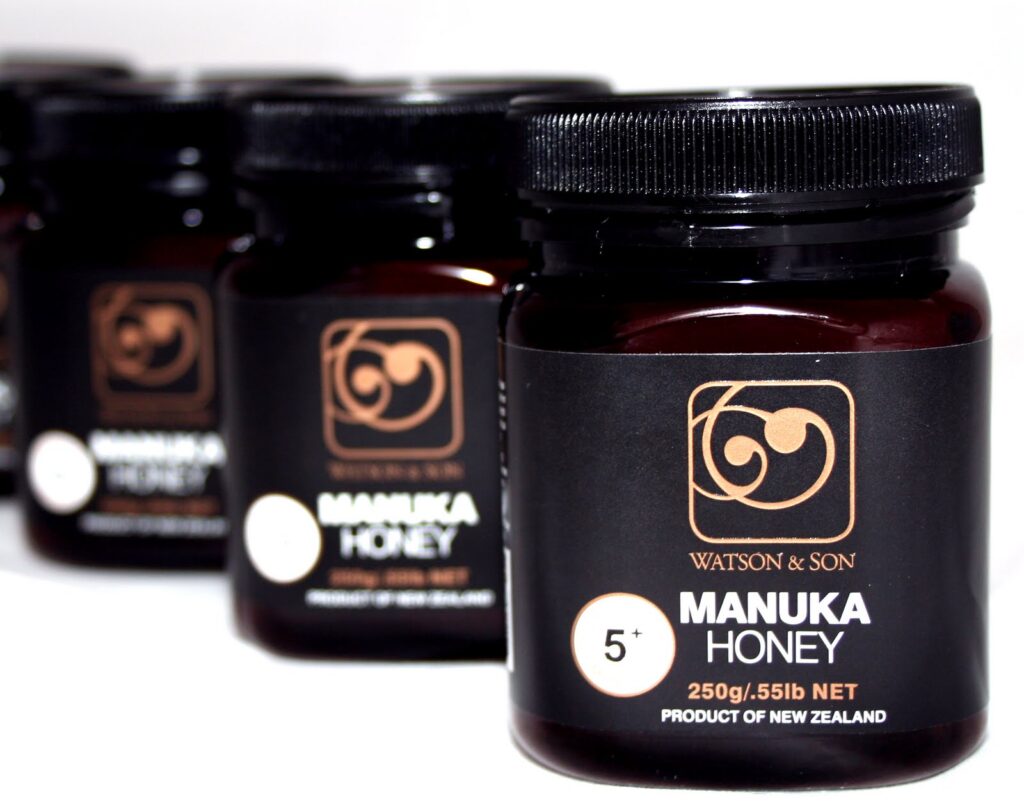
Why Manuka Honey is Valuable
Manuka honey is highly sought after and valued for its unique properties, potential health benefits, and limited supply. This particular type of honey is derived from the nectar of the Manuka tree, which is native to New Zealand. What sets Manuka honey apart from other varieties is its high concentration of methylglyoxal (MGO), a compound that is believed to give it its remarkable antimicrobial properties. Additionally, Manuka honey has been used for centuries in traditional medicine for its healing and soothing properties.
Unique Properties of Manuka Honey
Manuka honey stands out due to its exceptional properties. It is known for its high levels of MGO, which is believed to possess antibacterial and antiviral properties. This makes it an effective treatment for a variety of health issues, including sore throat, wound healing, and digestive problems. Manuka honey also boasts a unique dark color, thick texture, and distinct flavor profile, making it a gourmet choice among honey enthusiasts. Its darker color is a result of the naturally occurring compounds found in the nectar of the Manuka tree.
Potential Health Benefits
The potential health benefits of Manuka honey are numerous. Its antibacterial and antimicrobial properties make it an effective natural remedy for treating and preventing infections. Studies have shown that Manuka honey can help promote wound healing, reduce inflammation, and soothe gastrointestinal issues such as acid reflux and stomach ulcers. It is also believed to have antioxidant properties, which can help protect the body against free radicals and oxidative stress. Moreover, Manuka honey is often used as a natural sweetener and energy booster, providing a healthier alternative to processed sugars.
Limited Supply
One of the reasons why Manuka honey is so valuable is its limited supply. The Manuka tree only flowers for a short period each year, making the production of Manuka honey relatively scarce. Additionally, the Manuka tree is exclusively found in New Zealand, which further restricts the availability of this honey. The combination of limited flowering seasons and geographical restrictions creates a high demand for Manuka honey, driving up its value in the market.
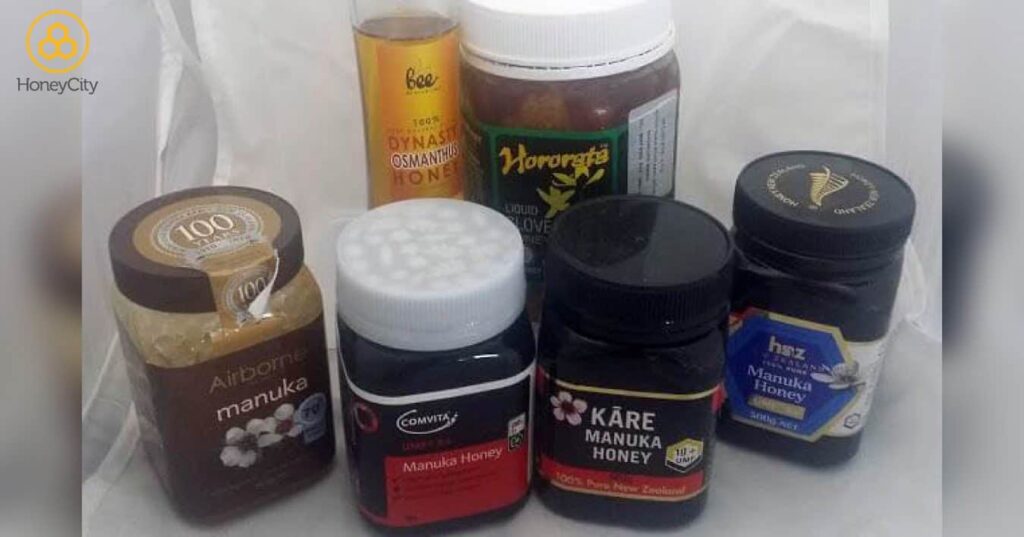
The Rise in Fake Manuka Honey Brands
With the increasing popularity of Manuka honey, there has been a rise in fake brands flooding the market. This surge in counterfeit products can be attributed to two main factors: the growing demand for Manuka honey and the lack of regulation in the industry.
Increasing Popularity of Manuka Honey
Manuka honey has gained significant popularity in recent years due to its perceived health benefits and unique taste. As more consumers become aware of its potential healing properties, the demand for Manuka honey has skyrocketed. This growing demand has led to a surge in counterfeit products as unscrupulous individuals seek to take advantage of the market trend.
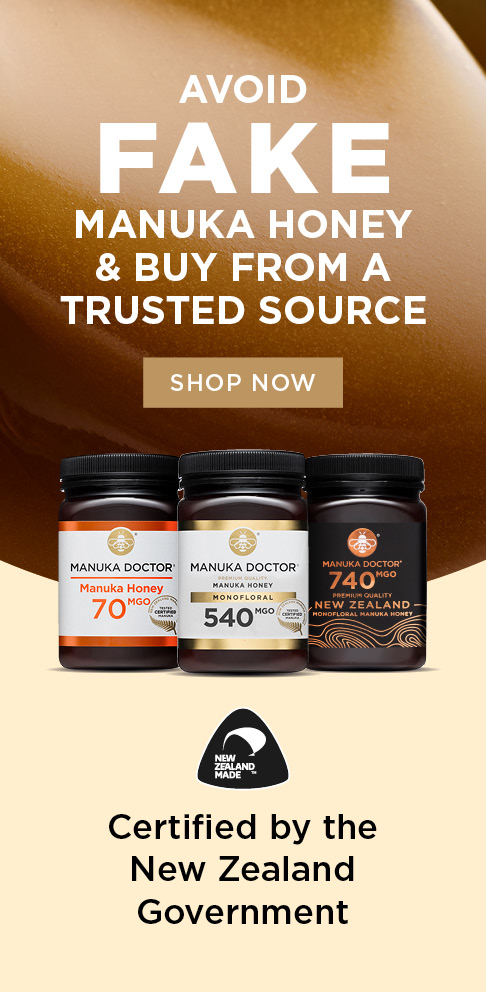
Lack of Regulation
One of the key factors contributing to the rise of fake Manuka honey brands is the lack of proper regulation in the industry. Unlike other food products, honey production is not extensively regulated in many countries, including New Zealand. This lack of oversight makes it easier for counterfeiters to manipulate the market and pass off substandard honey as genuine Manuka honey.
Profit Motive for Counterfeiters
Counterfeiters are motivated by profit and often exploit the high value of Manuka honey to deceive unsuspecting consumers. By creating fake brands and packaging that mimic genuine Manuka honey, these counterfeiters can sell their products at inflated prices and reap significant financial rewards. Unfortunately, this leaves consumers with low-quality honey that lacks the unique properties and potential health benefits of genuine Manuka honey.
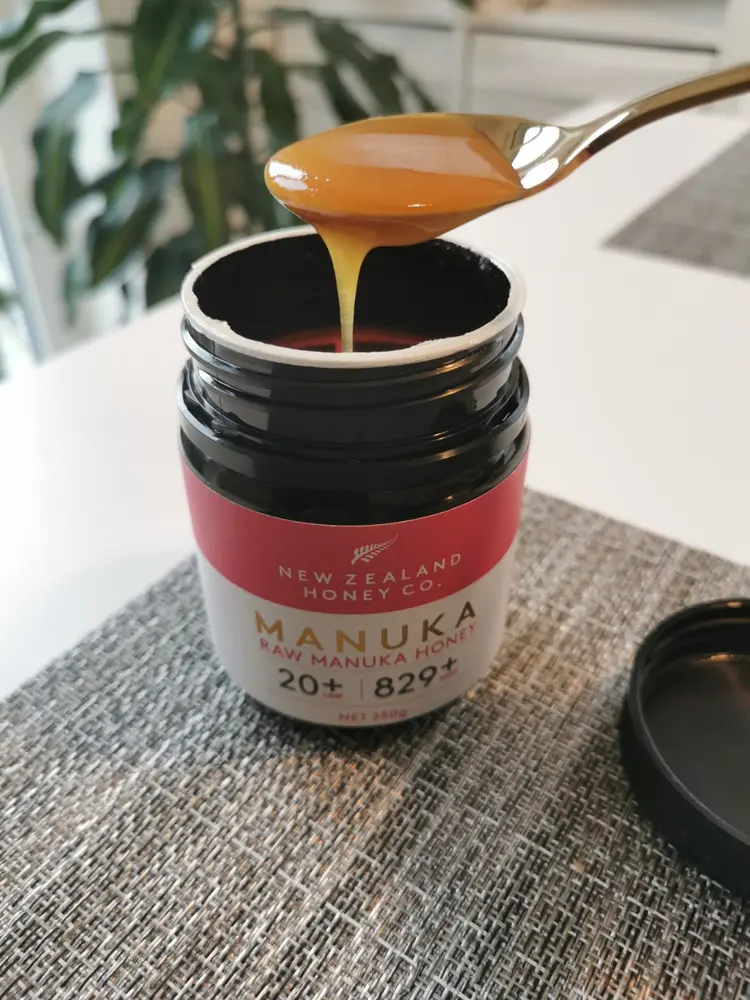
Identifying Genuine Manuka Honey Brands
To ensure you are purchasing genuine Manuka honey, it is essential to be aware of certain markers of authenticity. Look for brands that have the UMF (Unique Manuka Factor) or MGO (Methylglyoxal) certification, as these are reliable indicators of the honey’s purity and quality. Additionally, pay attention to the country of origin, packaging, and labeling of the product.
UMF or MGO Certification
The UMF or MGO certification is an important factor to consider when purchasing Manuka honey. These certifications guarantee that the honey meets certain quality standards and contains the necessary levels of MGO to provide its unique properties. Be sure to look for the UMF or MGO rating clearly displayed on the packaging, as this ensures that the honey is genuine and not a counterfeit product.
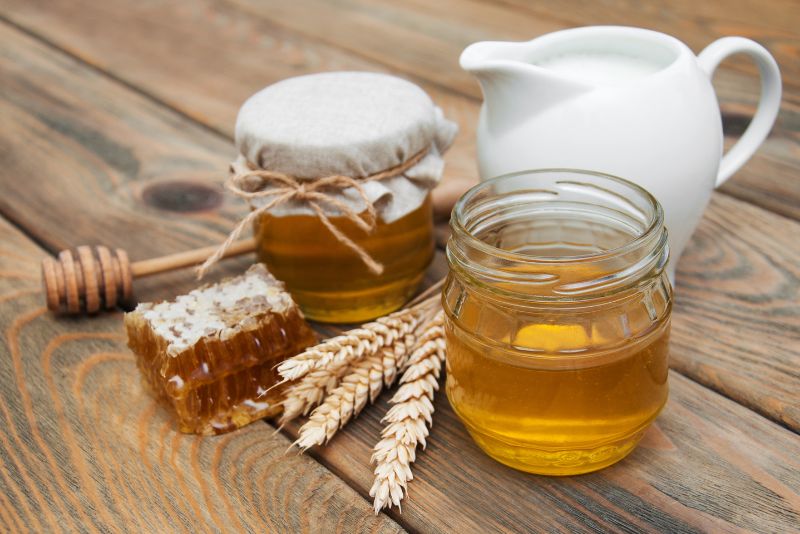
Country of Origin
Authentic Manuka honey is exclusively produced in New Zealand. Therefore, it is crucial to check the country of origin on the packaging of the product. Genuine Manuka honey will explicitly state that it is made in New Zealand, and any other country of origin should raise doubts about its authenticity.
Packaging and Labeling
Pay close attention to the packaging and labeling of the Manuka honey. Genuine brands will have clear and professional packaging, often with information regarding the honey’s unique properties, production methods, and health benefits. Counterfeit products may have poorly designed packaging, misspelled words, or misleading claims. Look for proper nutritional information on the label as well, as this is typically included in genuine Manuka honey brands.
Key Factors to Look for in Packaging and Labeling
When inspecting the packaging and labeling of Manuka honey, there are several key factors to look out for:
Specific Honey Variety Mentioned
Authentic Manuka honey is produced from the nectar of the Manuka tree. Look for mention of the specific honey variety on the packaging, as this confirms that it is genuine Manuka honey.
UMF or MGO Rating Clearly Displayed
The UMF or MGO rating should be clearly displayed on the packaging. This rating indicates the concentration of MGO in the honey and serves as a measure of its quality and potency. Ensure that the displayed rating matches the certification mentioned on the label.
Accurate Country of Origin
As mentioned earlier, genuine Manuka honey is exclusively produced in New Zealand. Check that the packaging explicitly states that the honey is made in New Zealand. Any other country of origin should raise suspicions.
Proper Nutritional Information
Genuine Manuka honey brands will provide accurate nutritional information on the packaging. This includes details about the honey’s sugar content, calorie count, and other relevant nutritional values. Counterfeit products may lack this information or provide inaccurate and misleading details.
Popular Fake Manuka Honey Brands to Avoid
To protect yourself from purchasing counterfeit Manuka honey, it is important to be aware of popular fake brands and avoid them altogether. Here are some red flags to watch out for:
Honey that Lacks UMF or MGO Certification
Any Manuka honey brand claiming to be authentic but lacking the UMF or MGO certification should be avoided. These certifications are crucial in guaranteeing the honey’s purity and quality.
Honey with Inaccurate Country of Origin
If the packaging of the honey states a country of origin other than New Zealand, it is likely not genuine Manuka honey. Be cautious of brands that try to pass off their honey as authentic Manuka honey by misleading consumers with false country of origin claims.
Honey with Suspiciously Low Prices
The high demand and limited supply of genuine Manuka honey contribute to its value. If you come across Manuka honey being sold at suspiciously low prices, it is likely a counterfeit product. Authentic Manuka honey is generally more expensive due to its unique properties and limited availability.
How to Avoid Fake Manuka Honey Brands
To ensure you are purchasing genuine Manuka honey, follow these steps:
Buy from Trusted Retailers
Purchase Manuka honey from reputable and trusted retailers. Established stores and online platforms that specialize in natural products are more likely to sell genuine brands rather than counterfeit ones.
Research the Brand and Manufacturer
Do some research on the brand and the manufacturer of the honey you are considering purchasing. Look for well-established companies with a history of producing genuine Manuka honey. Check for certifications and customer reviews to gauge the authenticity and quality of the product.
Read Customer Reviews
Customer reviews can provide valuable insights into the authenticity and quality of a specific Manuka honey brand. Read reviews from multiple sources to get a comprehensive understanding of the product and the experiences of other customers.
Legal Actions Against Fake Manuka Honey Brands
In recent years, there have been some legal actions taken against fake Manuka honey brands. While prosecuting counterfeiters can be challenging, several cases have resulted in successful prosecutions and penalties for those involved.
Cases of Prosecutions
Authorities have cracked down on counterfeit Manuka honey brands, leading to successful prosecutions. These cases have often involved thorough investigations, collaboration between law enforcement agencies and the honey industry, and the implementation of stricter regulations on honey production.
Challenges in Prosecuting Counterfeiters
Prosecuting counterfeiters can be a challenging task. The global nature of the honey industry and the intricate supply chains make it difficult to trace the origin and production of counterfeit honey. Additionally, counterfeiters often adapt their strategies and methods to evade detection, making it harder for authorities to catch and prosecute them. The lack of stringent regulations in some countries further exacerbates the challenges faced in prosecuting counterfeiters.
The Impact of Fake Manuka Honey Brands
The presence of fake Manuka honey brands in the market has several negative impacts on both consumers and the genuine Manuka honey industry.
Financial Loss to Consumers
Consumers who unknowingly purchase fake Manuka honey brands not only miss out on the potential health benefits but also suffer a financial loss. Counterfeit honey is often sold at inflated prices, tricking consumers into paying for substandard products.
Potential Health Risks
The consumption of counterfeit Manuka honey can pose potential health risks. Fake brands may lack the unique properties and medicinal benefits associated with genuine Manuka honey. Furthermore, counterfeit honey may contain harmful additives or contaminants that can have adverse effects on health.
Damage to Genuine Manuka Honey Industry
The proliferation of fake Manuka honey brands tarnishes the reputation of the genuine Manuka honey industry. The presence of counterfeit products undermines the hard work and dedication put into producing authentic Manuka honey and diminishes consumer trust in the market. This can have long-term consequences for genuine producers, who may struggle to maintain a fair market share and compete against counterfeiters.
Steps to Take if You Suspect Fake Manuka Honey
If you suspect you have purchased fake Manuka honey, it is crucial to take appropriate steps to address the issue and protect yourself:
Contact the Food Safety Authority
If you have concerns about the authenticity or quality of the Manuka honey you have purchased, contact the relevant food safety authority in your country. They will be able to guide you on the necessary steps to follow and may conduct investigations to ensure consumer safety.
Report to the Manufacturer
Reach out to the manufacturer of the honey and express your concerns about its authenticity. Provide them with any evidence or information that supports your suspicions. Reputable manufacturers will take these reports seriously and may take necessary action against counterfeit products.
Notify the Retailer
If you purchased the Manuka honey from a retailer, inform them about your concerns. By notifying the retailer, you can help prevent other unsuspecting customers from purchasing counterfeit products. Retailers may also take measures to investigate their supply chains and ensure the removal of any fake honey products.
Conclusion
Manuka honey is a valuable and highly sought-after natural product, known for its unique properties and potential health benefits. However, with the rise in fake Manuka honey brands, it is crucial for consumers to be vigilant and informed. By understanding the unique properties of Manuka honey, identifying genuine brands, and taking appropriate actions when encountering fakes, consumers can protect themselves and support the genuine Manuka honey industry.